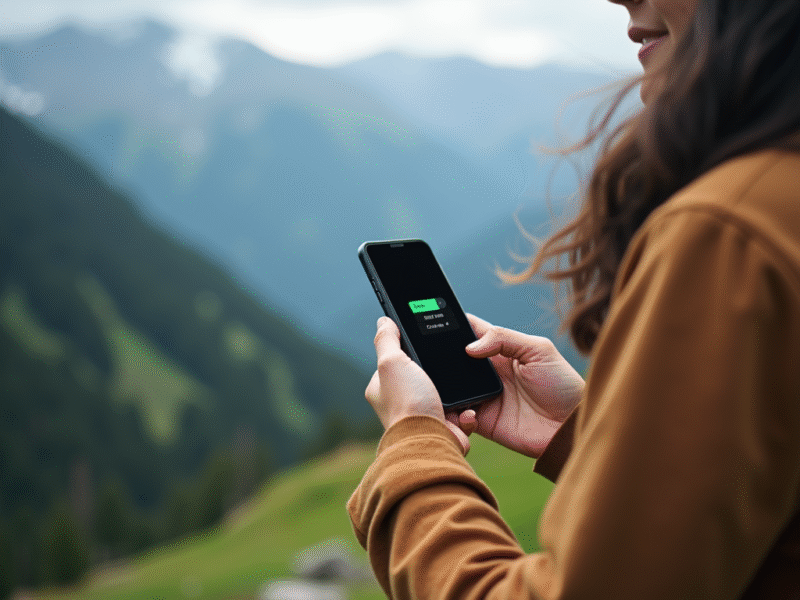Protecting your mobile phone is important, for personal and business reasons. You might be worried about losing your phone or having it stolen, or you might use it for business purposes and want to make sure that sensitive data on it is not compromised. In this blog, we will talk about how you can protect your mobile phone, from protecting it from thieves and from viruses.
Protecting your phone is important, but it can be a difficult balancing act. The last thing you want is for your phone to be dead when you need it most, but you also don’t want to pay a fortune on a protective case. Luckily, there are ways to get the best of both worlds. For instance, you can find branded covers, like this 24h le mans iphone case and similar other accessories from various online retailers. They may prove to be cost friendly. In any case, it is paramount that you do the adequate research in order to locate a pocket friendly case. If you are unsure on where to start looking or you want to explore further, then this article may prove to be helpful! So, read on for tips on how to protect your phone, without spending too much money in the process. Protecting your mobile phone can be a bit challenging, but that doesn’t mean it’s impossible.
With smartphones becoming increasingly cheaper, affordable, and powerful, it’s becoming very tempting for people to go out and buy one. But there are some dangers in purchasing a smartphone, and the most important thing to remember is that there’s no phone that’s totally secure. No matter where you purchase your phone-from a pawn shop, a used electronics store, or even an online seller-you’re still putting yourself at risk.
Here’s How Can You Protect Your Mobile Phone:
- Stick To the App Store.
Apple does not allow you to download apps from third-party app stores, but there are plenty of Android developers that work around that restriction. Apps in the Google Play store are vetted by Google, so Google can ensure that the app is safe to use and won’t harm your phone. Some basic precautions can go a long way in protecting your mobile phone. Use a strong password and keep it updated. Only download apps from the Apple Store or Google Play Store. Use the prompts on your phone to give access only to trusted people, such as family members.
- Use A Password.
Your mobile phone is most likely one of your biggest possessions, and you don’t want to see the thing get stolen. Protecting your phone with a tough password is one way to thwart thieves. Your mobile phone is likely one of your most important possessions. Many tasks you perform on a daily basis, such as banking, checking your email, and shopping, rely on your phone. Unfortunately, however, it is also a common target for theft, and if you have recently upgraded to a new phone, you may be considering protecting it.
- Encrypt Your Phone.
As mobile phones get more powerful, they are increasingly becoming targets for hackers. As your collection of contacts and personal data grows, so does the threat. Protect yourself and your contacts from digital pickpockets by encrypting your mobile phone. This will make it nearly impossible for anyone to crack your phone’s passcode. To “encrypt” your phone, simply download a free app that provides this functionality.
- Use A Fingerprint Reader.
The fingerprint sensor is what starts the process on the Galaxy S21. The fingerprint sensor is part of the phone’s facial recognition software, and it’s what unlocks and authenticates your phone when you place your finger on it. The fingerprint scanner can be used to authenticate payments in Samsung Pay, sign in to apps, and use other biometric services. Even if your phone isn’t lost or stolen, your fingerprint information may fall into the wrong hands. You open your phone and it asks for a fingerprint. You swipe your finger over the sensor and the phone unlocks. But someone else could swipe your finger over that sensor to unlock your phone.
- Use An App to Track Your Phone.
When your phone is stolen, you may feel helpless. You can protect your phone with an app, but how can you track it down? You could call your service provider and report theft, but that can be a lengthy process. You could also call your phone’s manufacturer, though that won’t always help you. Instead, your best bet is to install an app that can help you locate your phone-and more importantly, help you block it if it has fallen into the wrong hands.
Your cell phone is one of the most valuable possessions in your life. We rely on it, and we can’t turn it off, even if we wanted to. Unlike some electronics, cell phones, tablets, and laptops are very personal as well. Your phone is more than just a device, it’s a part of your identity.
With a brand-new phone, it’s easy to overlook all the little things that are easy to forget about as new phones come with a lot of new technology. While new phones come loaded with tons of features, it can be overwhelming to try to figure out how to navigate all of that.



